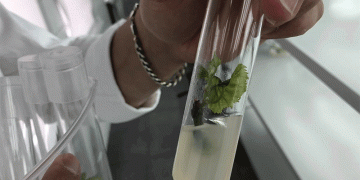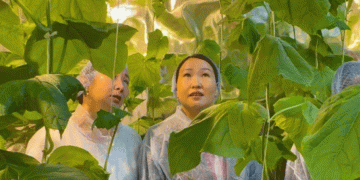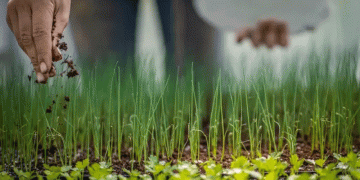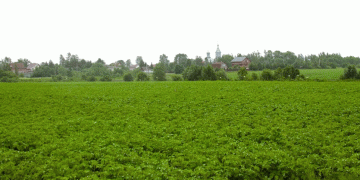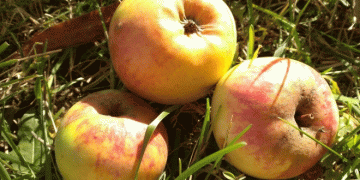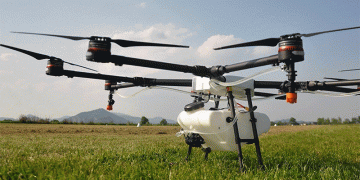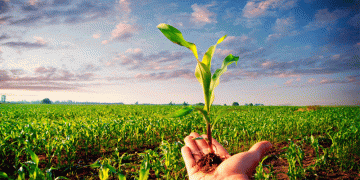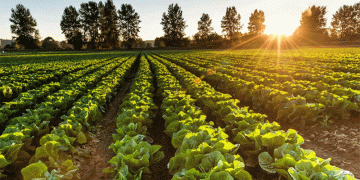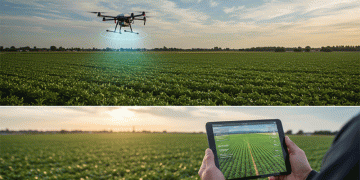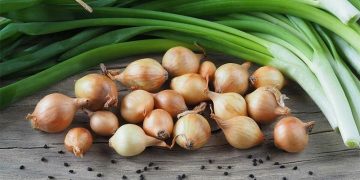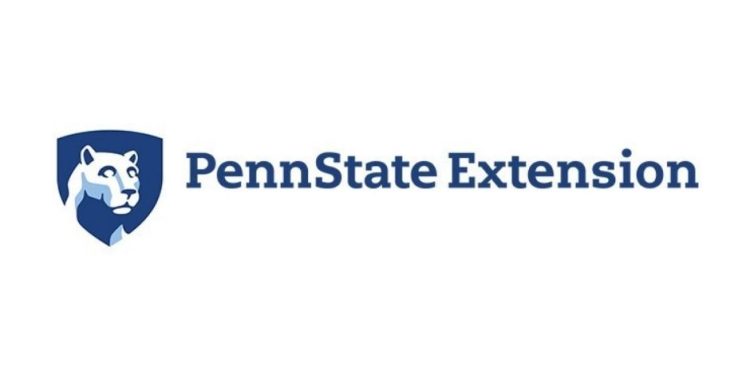It’s 2021, almost 2022, and the rate of technological innovation in our economy and society continues apace. What emerging tools could give Pennsylvania wholesale growers a competitive advantage and reduce barriers to financial success?
Technology has transformed many aspects of agriculture and the economy, yet many of the business and record-keeping systems used by growers lag behind the digital revolution. A relatively new technology called “blockchain” has potential applications for farms and food supply chains.
What is blockchain?
Blockchain is a foundational technology on which new economic and legal systems can be built. It first appeared with the launch of a digital currency called ‘Bitcoin’ about ten years ago. In a nutshell, blockchain is a tool that can record transactions and track information between businesses and assets across supply chains. Once created, transactions become part of a permanent record and cannot be manipulated by individual users.
One way to think of blockchain in the year 2021 is to compare it to the internet of the early 1990s. The use of the ‘World Wide Web’ was very limited at that time, relative to the many sophisticated uses of today. Individual organizations and small networks of people experimented with new tools like ‘Electronic Mail’ and informational websites built upon the early version of the ‘Internet.’ Similarly, uses for blockchain like the digital currency mentioned above, are being created now. Many more applications of blockchain technology will be developed in the coming years.
Why is blockchain worth thinking about now?
Why was the internet worth learning about in the early 1990’s? New foundational technologies like the internet in the 1990’s – and, potentially, like blockchain now – have the ability to redefine how we relate to each other, conduct business, and generate financial success. Early examples of blockchain use in the food supply chain include giving consumers access to information about product origins and growing practices; automating contracts and payment processes; improving product and ingredient traceability; and enabling efficient cooperation and aggregation among producers.
Consumers want more information. Grocery shoppers want to ‘know their farmer.’ Many surveys show that knowing how and where food is produced impacts consumer purchasing decisions. Blockchain technology enables some producers to differentiate their brand and deepen engagement with consumers. For example, IBM is developing a global network of olive oil suppliers and using blockchain to trace the supply chain of their products around the world.
Blockchain may help producers save time and money. Automatic or ‘smart’ contracts built upon blockchain technology could send payment to a producer as soon as delivery is confirmed, for example. GPS tracking, attached to loads of product or individual SKUs, could automatically log location updates and trigger additional contractual terms or provide clear chain-of-custody information for traceability.
Retailers might one day require participation in their blockchain systems. Traceability is a rising trend in wholesale produce supply chains. Traceability systems track product from its point of origin to the final consumer purchase, usually with a focus on food safety and tracking potential outbreaks of foodborne illness. Blockchain technology could be used here to track the quality, safety, and flow of products. TraceHarvest Network uses blockchain technology to improve identification and remediation during food safety recalls and certify products’ origin and certification claims. Walmart is exploring blockchain applications in their cold chain, to trace E. coli outbreaks in lettuce for instance, to track down potentially contaminated product in a faster, more targeted, verifiable way.
Using blockchain, small producers could also better compete with large-scale or international producers through cooperation and aggregation. New systems for working together that include automatic contracts and improved traceability could satisfy the strict requirements of major market outlets and open new sales opportunities for grower networks.
Pennsylvania producers planning for their business’s future will do well to keep blockchain technology on their radar. Long-term success requires learning new tools and techniques as they benefit your business and justify the costs of adoption. Blockchain will likely shape the digital economy of the future and impact PA producers’ financial success.
– Jay Eury and Becky Clawson, Penn State Extension educators














